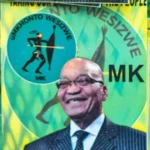President Bola Tinubu on has outlined an ambitious plan for Africa to combat the scourge of terrorism through coordinated regional efforts that go beyond military action to address the root societal causes.
Speaking at the African High-Level Meeting on Counter-Terrorism in Abuja on Monday, Tinubu stressed that Africa must take a holistic approach, seeking to tackle not only the terrorist groups themselves but also the conditions of poverty, inequality and social injustice that allow such extremism to take root.
“Not only does it kidnap people, it kidnaps precious resources. Billions upon billions of dollars that legitimate governments should be using to sculpt better societies by providing education, healthcare, and food for its people now go to pay for weapons and response to mayhem,”Tinubu stated.
“Look at the illegal mining that plagues so many of our nations today. Those who think illegal mining has no connection with financing terrorism are sorely mistaken. The international community has both the moral and legal obligation to help in this cause because it is external finance, not African money, that fuels these illegal operations. We shall be knocking on this door of the international community to answer this call for justice, peace, and fair play.
“Key to our collective efforts against terrorism is the urgent need for a fully operational Regional Counter-Terrorism Centre.”
The President, however, added that the African region must strengthen existing counter-terrorism structures, such as the Regional Intelligence Fusion Unit (RIFU) in Abuja, the African Centre for the Study and Research on Terrorism (ACSRT) in Algiers, and the Committee of Intelligence and Security Services of Africa (CISSA) in Addis Ababa.
Key to the strategy is Tinubu’s call to establish a new Regional Counter-Terrorism Centre to serve as a continental hub for intelligence sharing, operational coordination and capacity building efforts against terrorist threats across Africa.
The Nigerian leader also proposed strengthening existing counter-terrorism structures like the Regional Intelligence Fusion Unit in Abuja and pushing for a rapid deployment regional standby force with an anti-terrorism mandate.
On the domestic front, Tinubu highlighted Nigeria’s moves to enhance its counter-terrorism capabilities through measures like the Terrorism Prevention and Prohibition Act and the new National Counter Terrorism Centre to coordinate strategies against groups like Boko Haram.
The president affirmed Nigeria’s commitment to work with partners across Africa to strengthen arms control, disrupt illicit weapons trafficking networks, and combat terrorism financing sources like kidnapping for ransom and illegal mining activities.
Tinubu also emphasized the importance of good governance, saying “As leaders, let us show our people that their safety and welfare are paramount.”
UN Deputy Secretary-General Amina Mohammed, speaking at the summit, backed Tinubu’s call to “rebuild the social contract” with citizens and deliver on good governance as part of eliminating the conditions that allow terrorism to fester.
The high-level meeting brought together regional and international leaders to map out comprehensive security, economic and social strategies against the terrorism threat that has plagued many parts of Africa in recent decades.









